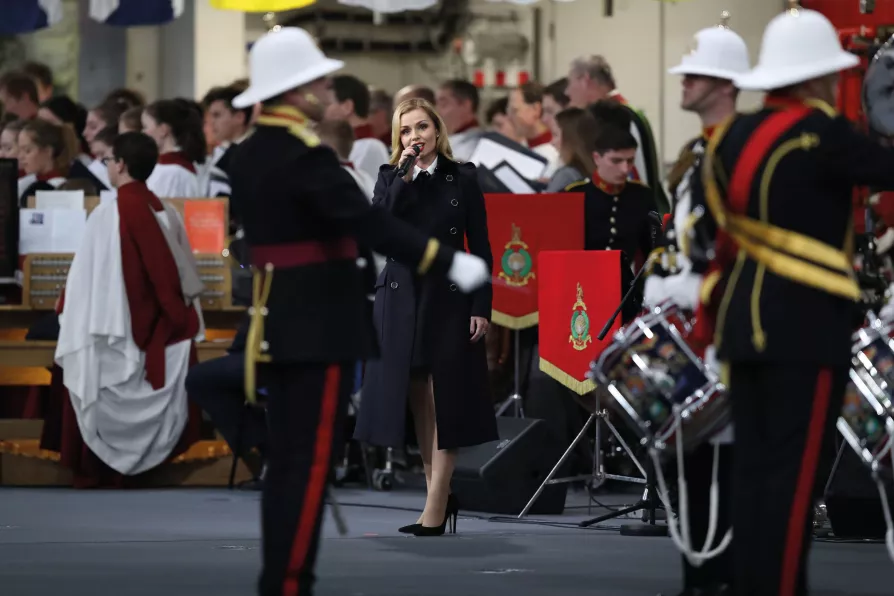The PM says Mandelson 'betrayed our values' – but ministers and advisers flock to line their pockets with corporate cash, says SOLOMON HUGHES

 MILITARIST ANTHEM:
I Vow to Thee, My Country is performed at the commissioning ceremony for the Royal Navy warship HMS Queen Elizabeth
MILITARIST ANTHEM:
I Vow to Thee, My Country is performed at the commissioning ceremony for the Royal Navy warship HMS Queen Elizabeth
LEADER of the Can’t Sing Choir, pioneer of musical education for women, close collaborator with the notorious Red Vicar of Thaxted, involuntary composer of I Vow to Thee, My Country, and composer of Britain’s most recorded piece of music ever, Gustavus von Holst was born in Cheltenham on September 21, into a family of musicians and music teachers.
In his teens, he was employed as an organist and choirmaster. Physical frailties forced him to abandon the piano and take up the trombone instead. Earnings from that financed his studies in composition.
Except for one or two brief sabbaticals, paid for by wealthy patrons, Holst never worked as a full-time composer. To the very end of his life, he taught music at private schools, and for much of it, he was variously a trombonist in orchestras and theatres, college lecturer, church organist and choir leader.

A WWI hero, renowned ornithologist, medical doctor, trade union organiser and founder member of the Communist Party of Great Britain all rolled in one. MAT COWARD tells the story of a life so improbable it was once dismissed as fiction

‘Honest’ Tom Wharton’s 1682 drunken rampage through St Mary’s church haunted his political career, but his satirical song Lillibullero helped topple Catholic James II during the Glorious Revolution, writes MAT COWARD

MAT COWARD tells the story of Edward Maxted, whose preaching of socialism led to a ‘peasants’ revolt’ in the weeks running up to the first world war











